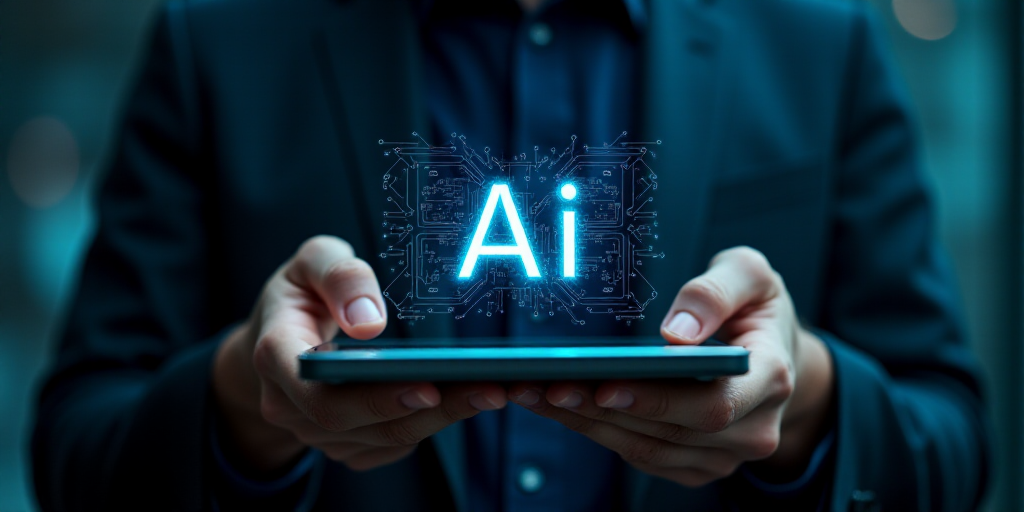Sam Altman
Sam Altman, CEO of OpenAI, the creator of ChatGPT, returned to the board in 2024 after a brief but scandalous removal in 2023. Altman oversees an organization that has raised more than $20 billion in investments, primarily from Microsoft. His goal is to achieve Artificial General Intelligence (AGI), with cognitive abilities similar to or surpassing human capabilities.
Under his leadership, OpenAI has been praised for democratizing AI while also being questioned for accelerating its development with little control. The company’s rapid growth and significant investments have positioned it as a major player in the AI landscape.
Mark Zuckerberg
Mark Zuckerberg, through LLaMA 4 and MetaAI, aims to regain lost ground. In June, his company invested $14 billion in Scale AI and launched an unprecedented initiative to attract talent from OpenAI, Anthropic, and Google. Although his latest model fell short of expectations, Meta now focuses on building a “superintelligence” with a new team dedicated to developing AI surpassing human capabilities.
Elon Musk
Elon Musk, via xAI, champions Grok, his AI chatbot integrated into the X platform. However, the tool has faced criticism for providing inaccurate and contradictory information on critical topics like international conflicts recently. Despite this, Musk remains committed to AI, with his disruptive approach marked by controversies and sarcasm contrasting the regulation and safety pursuits of other actors.
Jensen Huang
Jensen Huang, leading NVIDIA, commands the company behind the world’s most sought-after chips. The H100 GPUs serve as the backbone for AI models like ChatGPT, Gemini, and Claude. With a valuation nearing $4 trillion, NVIDIA is an indispensable provider in the emerging AI economy.
Satya Nadella
Satya Nadella, Microsoft’s CEO, skillfully positioned OpenAI as a bridge between innovation and business. With Copilot integrated into Office, Windows, and Azure, the company already generates over $13 billion annually from AI. Although its cloud division disappointed analysts by the end of 2024, Nadella remains focused on sustainably monetizing AI for productivity and services.
Sundar Pichai
Sundar Pichai, representing Alphabet, commands Gemini, the successor to Bard, while DeepMind, his research lab, investigates scientific AI applications in areas like cancer, mathematics, and energy. With investments totaling $75 billion this year, Google views AI as a transformative technological revolution with societal implications.
Pichai advocates for a humanistic technology vision, but Google still faces the challenge of achieving OpenAI or Microsoft’s commercial impact. In February 2025, Pichai described AI as a “fundamental restructuring of technology” acting as an “accelerator of human ingenuity.”
“We are still in the early days of this AI paradigm shift, and we already know it will be the biggest of our lives,” Pichai said.
Dario Amodei
Dario Amodei, formerly of OpenAI and now CEO of Anthropic, champions AI more aligned with human values. His Claude model prioritizes safety and transparency amidst the unchecked advancement of the sector.
With investments exceeding $12 billion from Amazon and Google, Amodei leads the primary ethical alternative to ChatGPT’s dominance. However, he acknowledges that developers still don’t fully grasp how their AI creations function.
“Those outside the sector are often surprised and alarmed to learn that we don’t fully understand how our own AI creations work,” Amodei wrote in an online essay in April. “This lack of understanding is unprecedented in technology’s history.”
Key Questions and Answers
- Who are the key players shaping AI development? Sam Altman (OpenAI), Mark Zuckerberg (Meta), Elon Musk (xAI), Jensen Huang (NVIDIA), Satya Nadella (Microsoft), Sundar Pichai (Alphabet), and Dario Amodei (Anthropic).
- What are their primary goals in AI development? Altman aims for Artificial General Intelligence (AGI); Zuckerberg seeks to regain lost ground in AI; Musk focuses on integrating AI into platforms like X; Huang leads NVIDIA’s chip development crucial for AI models; Nadella monetizes AI for productivity and services; Pichai explores scientific AI applications; Amodei prioritizes ethical AI development.
- What challenges do these leaders face in their pursuit of AI advancement? Controversies and sarcasm surrounding Musk’s approach; criticism of inaccurate information from Grok; the challenge of achieving commercial impact like OpenAI or Microsoft; and the unprecedented lack of understanding of AI’s inner workings.






